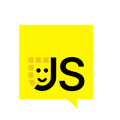
AmsterdamJS Meetup: Fine–Tuning Your Reactivity & more

Hosted by
AmsterdamJS
Thursday, October 5th 2023
6:00PM to 10:00PM CEST
In-Person
Address available to attendees
We missed you this time around!

👋 General Info
Hey, AmsterdamJS community!
After a break, we're returning in October with the new AmsterdamJS Meetup and hope to see you all there for great JS discussions and networking!
Don't miss an opportunity to become a speaker if you have some ideas in mind, just fill in this FORM.
📍Event location Fiberplane – Overtoom 16, 1054HJ, Amsterdam
🎫 Registration
Please do RSVP here to show your friends you’re coming.
Feel free to bring +1 friend who is interested in joining us (just share the link - so your friend could register as well).
🤝 In collaboration with
Great Respect for Fiberplane for hosting the meetup and fuelling us with snacks & beverages!
- Fiberplane is building a collaborative notebook platform for DevOps and Site Reliability Engineers. Fiberplane is the creator of Autometrics.
- Autometrics is an open-source observability micro framework for developers. Autometrics is built by Fiberplane to make observability and monitoring more accessible for developers. The mission of both Autometrics and Fiberplane is to enable developers to resolve and manage incidents with more focus and less friction.
This event made possible thanks to the support from GitNation.
🕑 Event Schedule
- 18:00 - Doors open - snacks, beer, socialization
- 19:00 - Intro and announcements
- 19:10 - Talks 🗣To propose a talk for our meetups please fill in the CFP Form
- 20:30 - Mingle until 10pm
🗣 Talks
➡️ Salama Ashoush: Fine-Tuning Your Reactivity: Harnessing the Power of Signals
Discover how to achieve high performance and exceptional user experience in your web applications using fine-grained reactivity with signals. This powerful technique allows you to fine-tune the reactivity of your components, making your applications more efficient and responsive to user interactions. Learn the benefits of using signals, how to implement them, and create highly reactive components that respond to changes in a targeted way, resulting in a better user experience.
➡️ Artem Kobzar – How to Make Friends with Android and Backend Departments
In this talk you will know how to share code between the next code bases: Web App, Android application, and Kotlin backend. I will show how to take those 3 applications and iteratively start to share step-by-step: models, data validation logic, request/response services, and even UI. At each step we will have a ready-to-production application and participants could chose any "depth" of the code sharing.
➡️ Laurynas Keturakis – TFW You can't Console.log Your Way out of Production Issues
Congrats, you deployed your Node app to prod! But how do you actually know if your users are having a good experience? Logs are great initially—until your dashboard becomes overwhelming. We could add metrics but they have a steep learning curve. In this talk we'll see where console.log falls short and learn how metrics help us better define what a good user experience is. We'll also discuss why useful code instrumentation is hard, and propose what we can do to make it easier.
➡️ If you have ideas and want to become a speaker, feel free to insert your proposal here
—
👍 Code of Conduct
By registering for this event you agree to comply with our CoC
📩 Contact
Presentations
Salama Ashoush
Fine-Tuning Your Reactivity: Harnessing the Power of Signals
Discover how to achieve high performance and exceptional user experience in your web applications using fine-grained reactivity with signals. This powerful technique allows you to fine-tune the reactivity of your components, making your applications more efficient and responsive to user interactions. Learn the benefits of using signals, how to implement them, and create highly reactive components that respond to changes in a targeted way, resulting in a better user experience.
Artem Kobzar
How to Make Friends with Android and Backend Departments
In this talk you will know how to share code between the next code bases: Web App, Android application, and Kotlin backend. I will show how to take those 3 applications and iteratively start to share step-by-step: models, data validation logic, request/response services, and even UI. At each step we will have a ready-to-production application and participants could chose any "depth" of the code sharing.
Laurynas Keturakis
TFW You can't Console.log Your Way out of Production Issues
Congrats, you deployed your Node app to prod! But how do you actually know if your users are having a good experience? Logs are great initially—until your dashboard becomes overwhelming. We could add metrics but they have a steep learning curve. In this talk we'll see where console.log falls short and learn how metrics help us better define what a good user experience is. We'll also discuss why useful code instrumentation is hard, and propose what we can do to make it easier.
Platform Sponsors

Don't let broken lines of code, busted API calls, and crashes ruin your app. Join the 4M developers and 90K organizations who consider Sentry “not bad” when it comes to application monitoring. Use code “guild” for 3 free months of the team plan.
https://sentry.io

Torc is a community-first platform bringing together remote-first software engineer and developer opportunities from across the globe. Join a network that’s all about connection, collaboration, and finding your next big move — together.
Join our community today!

We missed you this time around!

Platform Sponsors

Don't let broken lines of code, busted API calls, and crashes ruin your app. Join the 4M developers and 90K organizations who consider Sentry “not bad” when it comes to application monitoring. Use code “guild” for 3 free months of the team plan.
https://sentry.io

Torc is a community-first platform bringing together remote-first software engineer and developer opportunities from across the globe. Join a network that’s all about connection, collaboration, and finding your next big move — together.
Join our community today!
AmsterdamJS Meetup: Fine–Tuning Your Reactivity & more

Hosted by
AmsterdamJS
Oct
5
Thursday, October 5th 2023
6:00PM to 10:00PM CEST
In-Person
Address available to attendees
👋 General Info
Hey, AmsterdamJS community!
After a break, we're returning in October with the new AmsterdamJS Meetup and hope to see you all there for great JS discussions and networking!
Don't miss an opportunity to become a speaker if you have some ideas in mind, just fill in this FORM.
📍Event location Fiberplane – Overtoom 16, 1054HJ, Amsterdam
🎫 Registration
Please do RSVP here to show your friends you’re coming.
Feel free to bring +1 friend who is interested in joining us (just share the link - so your friend could register as well).
🤝 In collaboration with
Great Respect for Fiberplane for hosting the meetup and fuelling us with snacks & beverages!
- Fiberplane is building a collaborative notebook platform for DevOps and Site Reliability Engineers. Fiberplane is the creator of Autometrics.
- Autometrics is an open-source observability micro framework for developers. Autometrics is built by Fiberplane to make observability and monitoring more accessible for developers. The mission of both Autometrics and Fiberplane is to enable developers to resolve and manage incidents with more focus and less friction.
This event made possible thanks to the support from GitNation.
🕑 Event Schedule
- 18:00 - Doors open - snacks, beer, socialization
- 19:00 - Intro and announcements
- 19:10 - Talks 🗣To propose a talk for our meetups please fill in the CFP Form
- 20:30 - Mingle until 10pm
🗣 Talks
➡️ Salama Ashoush: Fine-Tuning Your Reactivity: Harnessing the Power of Signals
Discover how to achieve high performance and exceptional user experience in your web applications using fine-grained reactivity with signals. This powerful technique allows you to fine-tune the reactivity of your components, making your applications more efficient and responsive to user interactions. Learn the benefits of using signals, how to implement them, and create highly reactive components that respond to changes in a targeted way, resulting in a better user experience.
➡️ Artem Kobzar – How to Make Friends with Android and Backend Departments
In this talk you will know how to share code between the next code bases: Web App, Android application, and Kotlin backend. I will show how to take those 3 applications and iteratively start to share step-by-step: models, data validation logic, request/response services, and even UI. At each step we will have a ready-to-production application and participants could chose any "depth" of the code sharing.
➡️ Laurynas Keturakis – TFW You can't Console.log Your Way out of Production Issues
Congrats, you deployed your Node app to prod! But how do you actually know if your users are having a good experience? Logs are great initially—until your dashboard becomes overwhelming. We could add metrics but they have a steep learning curve. In this talk we'll see where console.log falls short and learn how metrics help us better define what a good user experience is. We'll also discuss why useful code instrumentation is hard, and propose what we can do to make it easier.
➡️ If you have ideas and want to become a speaker, feel free to insert your proposal here
—
👍 Code of Conduct
By registering for this event you agree to comply with our CoC
📩 Contact
Presentations
Salama Ashoush
Fine-Tuning Your Reactivity: Harnessing the Power of Signals
Discover how to achieve high performance and exceptional user experience in your web applications using fine-grained reactivity with signals. This powerful technique allows you to fine-tune the reactivity of your components, making your applications more efficient and responsive to user interactions. Learn the benefits of using signals, how to implement them, and create highly reactive components that respond to changes in a targeted way, resulting in a better user experience.
Artem Kobzar
How to Make Friends with Android and Backend Departments
In this talk you will know how to share code between the next code bases: Web App, Android application, and Kotlin backend. I will show how to take those 3 applications and iteratively start to share step-by-step: models, data validation logic, request/response services, and even UI. At each step we will have a ready-to-production application and participants could chose any "depth" of the code sharing.
Laurynas Keturakis
TFW You can't Console.log Your Way out of Production Issues
Congrats, you deployed your Node app to prod! But how do you actually know if your users are having a good experience? Logs are great initially—until your dashboard becomes overwhelming. We could add metrics but they have a steep learning curve. In this talk we'll see where console.log falls short and learn how metrics help us better define what a good user experience is. We'll also discuss why useful code instrumentation is hard, and propose what we can do to make it easier.
Get in touch!
hi@guild.host